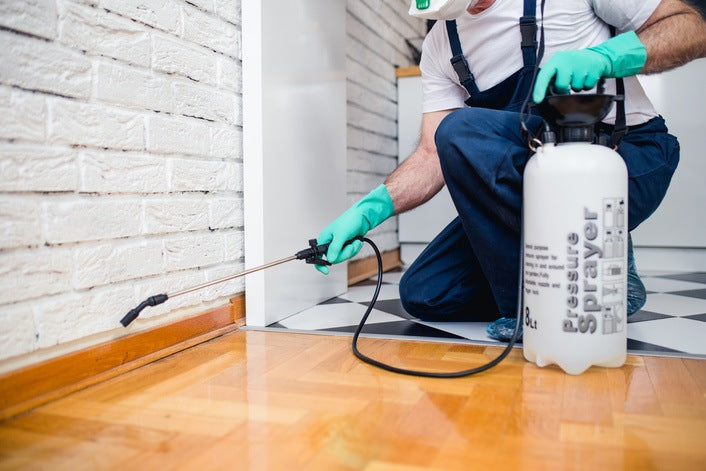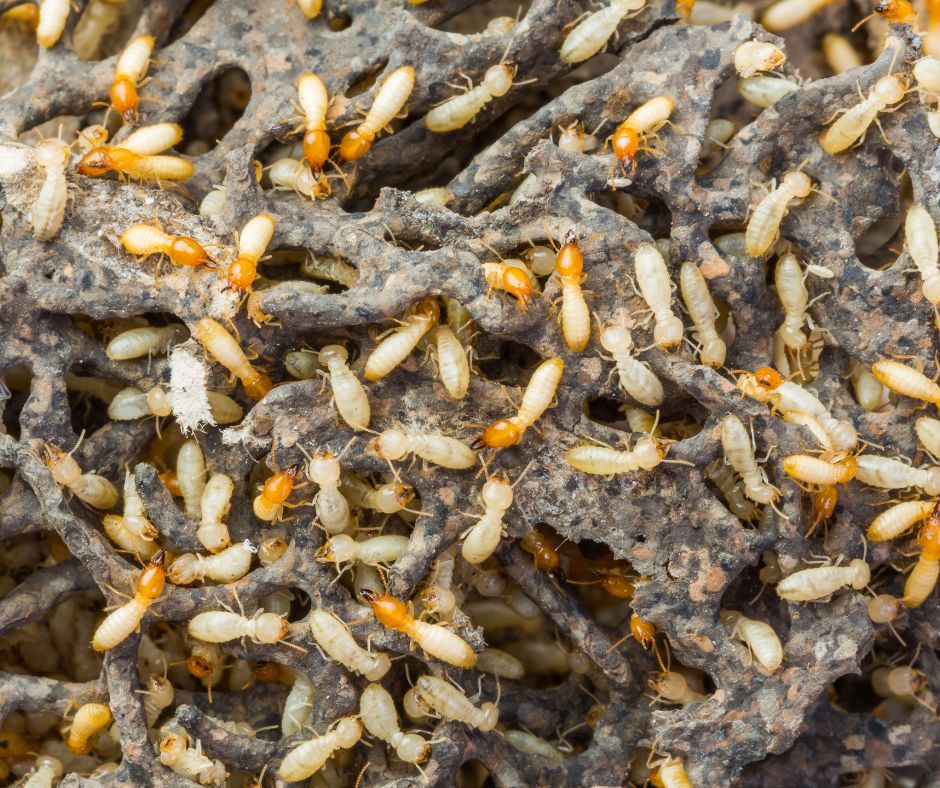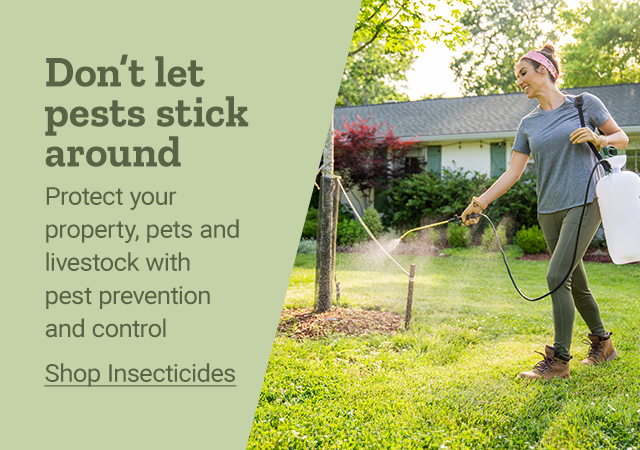Ant Exterminator Near Me: How to Exterminate Ants Swiftly and Effectively
Uncover the Value of Bug Control in Preserving a Healthy And Balanced Atmosphere and Treatment Strategies

The Function of Pests in Ecological Communities
Insects, typically seen solely as annoyances, play a complex duty in environments that is vital for preserving ecological balance. They contribute dramatically to various environmental procedures, including pollination, nutrition biking, and insect control. Numerous insect types, such as and butterflies, are crucial pollinators for a wide variety of plants, which in turn sustains biodiversity and food manufacturing.
Additionally, insects act as victim for countless killers, developing an important web link in food internet. This connection ensures the survival of various types and assists control populations within ecological communities (Termite treatment Port Charlotte). Decomposer pests, such as particular beetles and fungis, are crucial in breaking down organic matter, thus enriching dirt and promoting vitamins and mineral recycling.
Alternatively, while bugs can be beneficial, their overpopulation or invasion right into non-native settings may interrupt these ecological functions. This intricacy emphasizes the relevance of recognizing bug dynamics, as effective parasite monitoring methods need to think about both their environmental roles and possible effect on human activities. Stabilizing pest presence while minimizing injury is vital for maintaining the honesty of environments and making sure farming performance.
Wellness Dangers Related To Pests
The visibility of insects in various settings extends beyond their eco-friendly roles, as they also posture considerable health dangers to humans and pets. Lots of pests, including bloodsuckers, insects, and rats, are carriers of illness that can have serious health and wellness implications. For circumstances, rodents are recognized to transmit hantavirus and leptospirosis, both of which can cause severe breathing and kidney issues, specifically.
Bugs such as ticks and mosquitoes are notorious for spreading out vector-borne conditions like jungle fever, dengue fever, and Lyme condition. These diseases can cause high morbidity and death prices, specifically in vulnerable populaces. Furthermore, parasites like insects and roaches can intensify allergic reactions and bronchial asthma, adding to respiratory problems in individuals, particularly those with pre-existing problems.
Moreover, the visibility of parasites can lead to mental stress and discomfort, impacting overall health. Contamination of food and surface areas by pest droppings and remains can lead to foodborne illnesses, highlighting the importance of preserving hygienic problems. Consequently, recognizing the wellness threats related to parasites is crucial in identifying the necessity of effective parasite monitoring approaches to secure animal and human health and wellness.
Benefits of Effective Parasite Control
Efficient pest control is essential for keeping a safe and healthy and balanced atmosphere, as it consistently minimizes the various dangers connected with pest infestations. Among the main benefits of reliable pest management is the reduction of carcinogen. Parasites such as insects, roaches, and rodents are vectors for diseases that can affect both pets and human beings. By regulating these populaces, the probability of illness transmission is substantially reduced.
Additionally, efficient pest control safeguards property and frameworks from damage. Several insects, like termites and woodworker ants, can cause extensive structural damages that may call for costly fixings. By proactively managing these businesses, infestations and house owners can protect their investments.
One more substantial advantage is the enhancement of total lifestyle. A pest-free environment adds to mental wellness and lowers stress connected with infestations. Reliable parasite control cultivates a much safer environment for animals and children, making sure that homes stay sanctuaries totally free from damaging chemicals and disease-causing organisms.
Common Pest Control Techniques

In the realm of pest monitoring, different techniques are utilized to combat problems successfully. These techniques can be generally classified into 3 primary approaches: cultural, mechanical, and chemical controls.
Social control includes changing methods to lower insect reproduction, facility, and survival. This may include plant turning, appropriate see this site hygiene, and habitat control, which jointly create an atmosphere much less conducive to pest expansion.
Mechanical control employs physical methods to get rid of bugs (Termite treatment Port Charlotte). Methods such as catches, obstacles, and vacuum cleaners are typically used to directly remove insects from an area. This method is especially effective for managing rodents and pests without making use of damaging chemicals
Chemical control includes the application of pesticides to manage pests. These substances can be categorized right into pesticides, fungicides, and herbicides, each targeting particular sorts of pests. It is essential to use these chemicals deliberately, sticking to security guidelines and regulations to minimize possible damage to non-target types and the environment.
Each insect control strategy has its benefits and limitations, and typically, an integrated strategy incorporating several methods generates the very best lead to keeping a pest-free atmosphere.
Sustainable Bug Management Practices
Lasting insect management techniques include a variety of methods developed to decrease environmental impact while successfully controlling bug populations. These methods prioritize making use of ecologically friendly techniques over chemical pesticides, consequently lowering the danger of harm to non-target varieties, including helpful bugs, wildlife, and humans.
Integrated Parasite Monitoring (IPM) is a keystone of lasting techniques, combining organic, cultural, mechanical, and chemical strategies to take care of pests. Organic control entails introducing natural killers or bloodsuckers to suppress insect populaces. Social practices, such as crop rotation and polyculture, interfere with pest life cycles and enhance ecosystem resilience.
Mechanical techniques, such as catches or obstacles, can efficiently stop parasite access without chemical intervention. Furthermore, preserving healthy and balanced ecosystems with appropriate soil administration, plant health and wellness, and biodiversity can normally minimize parasite concerns.
Education and learning and recognition are essential components, recommended you read empowering communities and people to identify parasite threats early and implement preventive steps. Termite treatment Port Charlotte. By fostering a holistic approach that stabilizes parasite control with eco-friendly honesty, lasting bug administration methods not only safeguard crops and structures however likewise contribute to a healthier environment for future generations
Conclusion

Recognizing the health threats connected with pests is critical in acknowledging the necessity of reliable insect monitoring strategies to guard human and animal health.
Reliable parasite control is necessary for preserving a risk-free and healthy and balanced atmosphere, as it consistently look at here mitigates the countless risks linked with insect problems.Integrated Pest Administration (IPM) is a cornerstone of sustainable techniques, combining organic, social, mechanical, and chemical strategies to handle pests. By comprehending the role of bugs, recognizing involved wellness threats, and employing diverse treatment methods, a sustainable strategy to pest management can be accomplished. Integrated Parasite Management (IPM) stresses a holistic approach that alleviates injury to helpful microorganisms while effectively managing bug populaces.